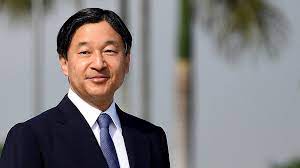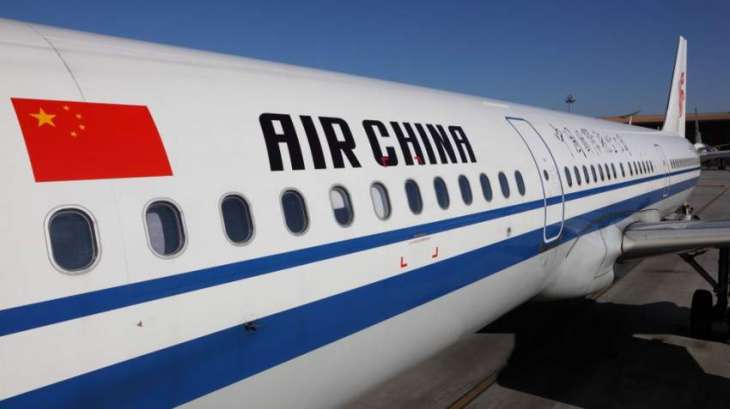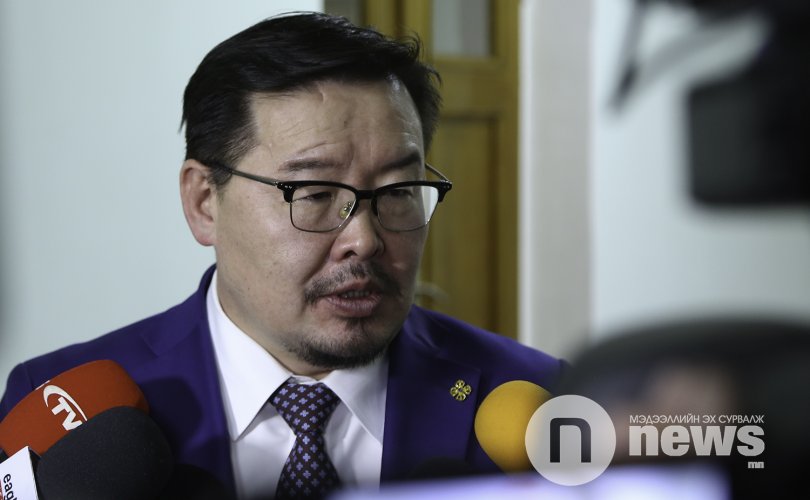Events
| Name | organizer | Where |
|---|---|---|
| MBCC “Doing Business with Mongolia seminar and Christmas Receptiom” Dec 10. 2025 London UK | MBCCI | London UK Goodman LLC |
NEWS

Emperor meets reporters ahead of visit to Mongolia www.3.nhk.or.jp
Japan's Emperor Naruhito has expressed resolve to promote friendly relations with Mongolia and mourn Japanese people who died after being detained there following World War Two.
The Emperor and Empress Masako are to make an official visit to the East Asian country for eight days from Sunday.
They are scheduled to take part in a welcome ceremony as state guests.
Meeting reporters on Wednesday, the Emperor looked back on his previous visit to Mongolia in 2007, when he was Crown Prince.
He expressed hope that the upcoming trip will serve as an opportunity to reflect on the history of exchange between Japan and Mongolia.
He added that the Empress also wishes to reflect on this shared history and prays that friendship and exchange between the two nations will further deepen.
He said she is looking forward to experiencing firsthand the vast wilderness of Mongolia, its history and culture, while interacting with people in the country.
The Emperor also mentioned the roughly 14,000 Japanese captured by the former Soviet Union and sent to Mongolia in the aftermath of World War Two. Of them, some 1,700 died from hard labor and other causes.
He noted the internees worked as laborers and participated in construction projects, which included the Government Palace and the state opera and ballet theater.
He said he has been told that they won the respect of the Mongolian people for their dedication, despite working in harsh conditions.
The Emperor said he hopes to reflect on such history through the visit when he and the Empress offer flowers at a monument for the Japanese people who lost their lives during their internment.
He said he wants to pay tribute to the people who died far from their homeland and think about the hardships they endured.

Wood advances rare earth elements project in Mongolia www.miningweekly.com
Global consulting and engineering firm Wood has been selected by the Mongolian National Rare Earth Corporation (MNREC) to deliver a definitive feasibility study for its Khalzan Buregtei rare earth elements (REE) project, in Mongolia.
Following the successful completion of a prefeasibility study in 2024, Wood will now lead the next phase, covering the project concentrator and refinery process plants.
It will be the lead consultant for the delivery of the overall feasibility study on MNREC’s behalf.
Wood points out that the Khalzan Buregtei deposit is poised to become one of the world’s few active sources of heavy REEs, including dysprosium – critical for high-tech manufacturing and green energy technologies.
As global demand for these materials grows, it says the project represents a vital step toward securing sustainable supply chains.
“Rare earth elements are critical to sustaining modern technology and enabling the energy transition. Delivering the Khalzan Buregtei project will significantly contribute to global supplies of these critical materials.
“Mongolia has the potential to become a hub for mineral activity in the coming decades. This newest contract underpins Wood’s strategic growth in Mongolia and our commitment to developing its local workforce and economy,” says Wood minerals and metals senior VP Alan Langridge.
“Wood has been instrumental in assessing the economic and technical viability of Khalzan Buregtei thus far, focusing on resource evaluation, potential processing technologies and environmental impact. We look forward to continuing to strengthen our relationship as we enter the next phase of this groundbreaking project,” adds MNREC CEO Tsolmon Adiya.
By: Sabrina Jardim

The Bank of Mongolia Purchases 5.9 Tons of Precious Metals in First Half of 2025 www.montsame.mn
The Bank of Mongolia purchased 1,587.4 kilograms of precious metals in June 2025, an increase of 573.1 kg compared to the previous month.
However, since the beginning of 2025, a total of 5.9 tons of precious metals have been purchased, which represents a 24.3 percent decrease compared to the same period last year.
Since the beginning of the year, the Darkhan-Uul Branch of the Bank of Mongolia has purchased 287 kilograms of precious metals, while the Bayankhongor Branch bought 768 kilograms.
The average price for purchasing gold in the past month was MNT385,320.36 per gram.

The European Union Brings Creative Energy to Playtime 2025 Festival www.eeas.europa.eu
The European Union (EU) is proud to partner with Mongolia’s largest and most iconic music and youth culture event, the Playtime Festival, bringing a dynamic fusion of sustainability, innovation, and creativity to the heart of the festival experience.
From electrifying live performances to interactive installations, the EU’s offers festivalgoers a glimpse into a greener, more inclusive future—one powered by clean energy, digital access, and shared values.
At the heart of the festival grounds, the EU Zone invites visitors to engage with EU-funded projects shaping real change across Mongolia. Step inside the CHIP Ger, a traditional dwelling upgraded with EU-backed insulation and clean energy solutions, or explore the SOGE Tent, where hands-on activities highlight sustainable consumption and green economy practices. For a journey into the digital future, the DICE Tent offers immersive VR experiences showcasing EU efforts to bridge the digital divide and empower youth through technology.
Music lovers can catch top European talent supported by the EU, including Albert van Abbe from the Netherlands, a boundary-pushing techno artist, and Maria Chiara Argirò from Italy, known for her genre-defying blend of jazz, ambient, and synth-pop.
The EU is also supporting the festival’s efforts to strengthen inclusivity—from accessible latrines to dedicated elevated viewing areas for wheelchair users near the main stages—ensuring that everyone can fully enjoy the Playtime experience.
H.E. Ina Marčiulionytė, EU Ambassador to Mongolia highlighted in her discussion with the youth visiting the EU Zone, “Playtime is more than just a festival—it is your celebration of creativity, energy, and potential. I’m proud that the EU can be here with you, to share in your passion and to work together toward a greener, fairer, and more inclusive future. The Future is Yours! —and we are excited to walk this path with you”.
The EU’s vibrant presence at Playtime 2025 reflects its strong and growing commitment to sustainability, gender equality, inclusive governance, and youth empowerment—core pillars of the EU’s cooperation with Mongolia. Under the Global Gateway strategy, the EU is investing over €180 million in support of Mongolia’s transition toward a green, inclusive, and resilient future.
About Global Gateway
The Global Gateway stands for sustainable and trusted connections that work for people and the planet. It helps to tackle the most pressing global challenges, from fighting climate change, to improving health systems, and boosting competitiveness and security of global supply chains.
About European Union
The European Union is an economic and political union of 27 European countries. It is founded on the values of respect for human dignity, freedom, democracy, equality, the rule of law and respect for human rights, including the rights of persons belonging to minorities. It acts globally to promote sustainable development of societies, environment and economies, so that everyone can benefit.

Miat launches Shanghai-Ulan Bator flights www.global.chinadaily.com.cn
A direct route linking China's economic hub Shanghai and Ulan Bator, capital of Mongolia, will be launched by Miat Mongolian Airlines on July 3, which is expected to enhance travel convenience and strengthen economic and trade ties between the two neighboring countries.
"The direct flight between Shanghai and Ulan Bator is a new achievement in our aviation sector, which will effectively promote tourism, trade and economic cooperation between China and Mongolia," said Bold Dorjderem, Mongolian consul general in Shanghai, during an exclusive interview with China Daily on the sideline of a celebration ceremony for the new flight on Monday.
"The decision to launch the flight connecting Ulan Bator and China's business center Shanghai is expected to attract more business and investors to Mongolia from Shanghai as well as the Yangtze River Delta region as a whole," said Bold.
According to the carrier, the new route will offer passengers more seamless connections through Shanghai.
"The introduction of the new route is projected to bring between 20 percent and 30 percent more passenger flow for the carrier's operations in China, and this would consolidate China's position as the country with the largest amount of flight connections outside Mongolia for Miat," said Badral Erdenebaatar, general manager of Miat Mongolian Airlines in China.
Badral said the Shanghai-Ulan Bator route marks the fifth direct flight inaugurated by Miat in China after Beijing, Hohhot, Guangzhou and Hong Kong.
"In fact, we also have plans to launch flights to Ereenhot of the Inner Mongolia autonomous region later this year, as well as to further raise flight frequency of the Shanghai-Ulan Bator service next year," Badral said, adding that the carrier looks to attracting more transfer passengers from China with its shorter flight time and lower cost than direct flights.
Bold said that throughout 2024, 1 million passenger trips were made from Mongolia to China, while 300,000 passenger trips were made in the opposite direction, with travel demand still growing between the two countries.
The official website of the Ministry of Commerce said that in 2024, bilateral trade volume between China and Mongolia grew 8.5 percent to $19.05 billion year-on-year, accounting for 69.5 percent of Mongolia's total foreign trade during the period.
The Shanghai-Ulan Bator route departs from Shanghai Pudong International Airport and arrives at Ulan Bator's Chinggis Khaan International Airport every Thursday and Sunday (local time). The one-way flight time is about 3 hours and 50 minutes with Boeing 737 jets being used.
Based in Ulan Bator, Miat was established in 1956, and provides scheduled international service to 14 overseas and eight domestic destinations.
...

Sandvik Wins Major Mining Equipment Order in Mongolia www.marketscreener.com
Sandvik has received a major underground mining equipment order from Oyu Tolgoi LLC, to be used at the Oyu Tolgoi copper-gold mine in Mongolia's South Gobi Desert. The order is valued at approximately SEK 270 million and was booked in the second quarter, 2025. The order includes loaders and trucks, and deliveries are expected to begin in October 2025 and continue through November 2026.
Oyu Tolgoi, one of the world's largest known copper-gold deposits, is jointly owned by Rio Tinto and the Government of Mongolia.

Nine State-Owned Energy Companies in Western Region Consolidated into Four www.montsame.mn
At its regular session on July 2, 2025, the Cabinet of Mongolia decided to consolidate nine state-owned energy companies in the western region into four entities.
As a result, nine independent companies and their eight branches have been merged into four consolidated companies. Specifically:
Uvs Electricity Distribution Network LLC, Khovd Electricity Distribution Network LLC, Durgun Hydropower Plant LLC, and the Myangat Solar Power Plant have been merged to form the Western Region Electricity Distribution Network State-Owned JSC.
The distribution branches of Altai-Uliastai Energy System have been consolidated into a new entity named Altai-Uliastai Electricity Distribution Network State-Owned JSC.
Taishir-Guulin Hydropower Plant LLC, Bogdyn Gol Hydropower Plant LLC, Tosontsengel Hydropower Plant LLC, Serven Solar Power Plant, Murun Solar Power Plant, Borkh Solar Power Plant, and Khungui-Galuutai Hydropower Plant have been merged to form a company called Taishir Green Energy State-Owned JSC.
Additionally, as part of the Government’s initiative to optimize the structure and governance of state-owned enterprises, the Government Resolution on Some Measures on State-Owned Companies has been approved to enhance efficiency, reduce operational costs, and eliminate overlaps and gaps in responsibilities within the energy sector’s state-owned enterprises.
Under this Resolution, the Western Region Energy System State-Owned JSC and Altai-Uliastai Energy System State-Owned JSC have been integrated into the National Electricity Transmission Network State-Owned JSC.

OECD Upgrades Country Risk Classification of Mongolia www.montsame.mn
The Organisation for Economic Co-operation and Development (OECD) has upgraded the country risk classification of Mongolia by one level from its previous highest risk rating of 7/7 to 6/7 as of June 27, 2025.
The decision was made at the OECD’s meeting to revise and reassess the country risk classification held on May 27, 2025. Out of 40 countries whose credit risk assessments were reviewed, the ratings of only three countries changed. Namely, the ratings of the People’s Republic of Bangladesh and the Republic of Senegal were downgraded, while the rating of Mongolia was upgraded. This improves Mongolia’s reputation and creditworthiness in the international financial market, creating favorable conditions for the Government and the private sector to attract foreign investment and financing, while reducing relevant costs. Moreover, funding fees, particularly credit risk fees from export credit agencies and international financial organizations based in member countries of the OECD, will become more favorable. Specifically, fees will decrease by 3-6 percent, and costs of long-term export financing will also decrease.
An upgrade in country risk classification will alleviate the financial burden on the national budget and the private sector, expand the private sector’s opportunities to attract foreign investment and strengthen investor's confidence in Mongolia, while enhancing the competitive edge of producers and exporters in the global market.

Air China C909 makes international debut flight on Mongolia route www.chinadaily.com.cn
An Air China C909, a domestically developed regional aircraft, arrived in Ulaanbaatar, Mongolia on Tuesday morning, marking the first international flight of Air China's C909 and a further extension of the model's commercial network.
The flight also indicates a new operational phase of the domestically built aircraft's operation of international flights with the national flag painted on the body.
After departing from Hohhot Baita International Airport in the Inner Mongolia autonomous region, the plane landed in Ulaanbaatar after over one hour of flying. The airport welcomed the jet with a traditional water cannon salute.
The C909, which has between 78 to 97 seats and a flying range of 2,225 km to 3,700 km, has been in commercial operation for nine years. So far, 166 C909 planes have been delivered to domestic and overseas carriers, and they have together operated on over 700 routes, handling over 24 million passenger trips, according to its manufacturer Commercial Aircraft Corp of China.
"We are promoting the serialization of the C909, including derivative models such as the C909 cargo aircraft, medical rescue aircraft, emergency rescue command aircraft and business aircraft," said Chen Yong, chief designer of the C909 and chief engineer of COMAC.
COMAC officially renamed the domestically developed regional jetliner ARJ21 as the C909 in November 2024. The aircraft's three overseas carriers are Lao Airlines, Vietjet Air and Indonesia's TransNusa Aviation, according to COMAC.
"The commercial operation network of domestically developed aircraft in the international market has been further extended, and the overseas marketing of domestically developed civil aircraft has taken substantial steps forward," said Lin Zhijie, a civil aviation industry analyst.
State-owned carrier Air China has operated the C909 model for five years, and today, the airline's C909 fleet size has reached 35.Relying on three major operating bases in Beijing, Hohhot and Chengdu, Sichuan province, the carrier's C909 currently operates on over 30 routes and the number of daily scheduled flights has exceeded 100.
Air China said it would continue to promote the large-scale operation of the C909 and the single-aisle C919, and actively participate in the research and development of the C929 wide-body aircraft. The airline is expected to become the world's first carrier to operate the C929.
China's civil aviation market has experienced rapid growth so far this year and transported 190 million passenger trips in the first quarter, according to the Civil Aviation Administration of China.
By 2043, China will overtake North America and Europe to become the world's largest market for aviation services. By then, China is expected to have 11,160 aircraft in service, of which 9,520 are new deliveries, European aircraft manufacturer Airbus said in its latest global services forecast.

Prime Minister of Mongolia Highlights its Commitment to Stable and Reliable External Environment www.montsame.mn
Prime Minister of Mongolia Zandanshatar Gombojav received representatives of diplomatic missions in Mongolia and resident offices of international organizations and foreign investors and cooperation partners on June 30, 2025.
Prime Minister Zandanshatar provided detailed information on the policies and actions being implemented by the Government of Mongolia to reduce the negative impacts on the economy caused by the complex situation in international relations and divisive politics and to address major challenges and difficulties facing the country’s development. The Premier expressed that Mongolia would work fairly, transparently, and responsibly to attract foreign investment. Noting that Mongolia attaches importance to establishing a stable and reliable external environment, the Prime Minister underlined the Government’s commitment to implementing investor-friendly policies and protecting their interests, consistently adhering to the principle of being honest, transparent, and accountable.
Premier Zandanshatar stated that to create favorable conditions for attracting long-term stable investment, the Government would work toward establishing a condition to be beneficial to all parties including citizens, partners, and investors by listening to proposals from the private sector and strengthening public-private partnerships. The Premier highlighted that, in connection with changes in the external environment and the decline in raw material prices, the Government intends to make adjustments to the state budget to reduce public expenditures, optimize the government structure, and carry out a reform focused on “quality, not quantity.
Furthermore, Prime Minister Zandanshatar noted that a conference on climate change and regional security was successfully organized in Mongolia last month, and called on wide participation in the upcoming Mongolia Economic Forum and the World Women Entrepreneurs Forum to be held in Ulaanbaatar. At the end of the meeting, Prime Minister Zandanshatar emphasized that “The success of our cooperation builds on mutual trust and partnership” and called on remaining faithful to peace, development, and friendly relations and to move forward together.
- «
- 1
- 2
- 3
- 4
- 5
- 6
- 7
- 8
- 9
- 10
- 11
- 12
- 13
- 14
- 15
- 16
- 17
- 18
- 19
- 20
- 21
- 22
- 23
- 24
- 25
- 26
- 27
- 28
- 29
- 30
- 31
- 32
- 33
- 34
- 35
- 36
- 37
- 38
- 39
- 40
- 41
- 42
- 43
- 44
- 45
- 46
- 47
- 48
- 49
- 50
- 51
- 52
- 53
- 54
- 55
- 56
- 57
- 58
- 59
- 60
- 61
- 62
- 63
- 64
- 65
- 66
- 67
- 68
- 69
- 70
- 71
- 72
- 73
- 74
- 75
- 76
- 77
- 78
- 79
- 80
- 81
- 82
- 83
- 84
- 85
- 86
- 87
- 88
- 89
- 90
- 91
- 92
- 93
- 94
- 95
- 96
- 97
- 98
- 99
- 100
- 101
- 102
- 103
- 104
- 105
- 106
- 107
- 108
- 109
- 110
- 111
- 112
- 113
- 114
- 115
- 116
- 117
- 118
- 119
- 120
- 121
- 122
- 123
- 124
- 125
- 126
- 127
- 128
- 129
- 130
- 131
- 132
- 133
- 134
- 135
- 136
- 137
- 138
- 139
- 140
- 141
- 142
- 143
- 144
- 145
- 146
- 147
- 148
- 149
- 150
- 151
- 152
- 153
- 154
- 155
- 156
- 157
- 158
- 159
- 160
- 161
- 162
- 163
- 164
- 165
- 166
- 167
- 168
- 169
- 170
- 171
- 172
- 173
- 174
- 175
- 176
- 177
- 178
- 179
- 180
- 181
- 182
- 183
- 184
- 185
- 186
- 187
- 188
- 189
- 190
- 191
- 192
- 193
- 194
- 195
- 196
- 197
- 198
- 199
- 200
- 201
- 202
- 203
- 204
- 205
- 206
- 207
- 208
- 209
- 210
- 211
- 212
- 213
- 214
- 215
- 216
- 217
- 218
- 219
- 220
- 221
- 222
- 223
- 224
- 225
- 226
- 227
- 228
- 229
- 230
- 231
- 232
- 233
- 234
- 235
- 236
- 237
- 238
- 239
- 240
- 241
- 242
- 243
- 244
- 245
- 246
- 247
- 248
- 249
- 250
- 251
- 252
- 253
- 254
- 255
- 256
- 257
- 258
- 259
- 260
- 261
- 262
- 263
- 264
- 265
- 266
- 267
- 268
- 269
- 270
- 271
- 272
- 273
- 274
- 275
- 276
- 277
- 278
- 279
- 280
- 281
- 282
- 283
- 284
- 285
- 286
- 287
- 288
- 289
- 290
- 291
- 292
- 293
- 294
- 295
- 296
- 297
- 298
- 299
- 300
- 301
- 302
- 303
- 304
- 305
- 306
- 307
- 308
- 309
- 310
- 311
- 312
- 313
- 314
- 315
- 316
- 317
- 318
- 319
- 320
- 321
- 322
- 323
- 324
- 325
- 326
- 327
- 328
- 329
- 330
- 331
- 332
- 333
- 334
- 335
- 336
- 337
- 338
- 339
- 340
- 341
- 342
- 343
- 344
- 345
- 346
- 347
- 348
- 349
- 350
- 351
- 352
- 353
- 354
- 355
- 356
- 357
- 358
- 359
- 360
- 361
- 362
- 363
- 364
- 365
- 366
- 367
- 368
- 369
- 370
- 371
- 372
- 373
- 374
- 375
- 376
- 377
- 378
- 379
- 380
- 381
- 382
- 383
- 384
- 385
- 386
- 387
- 388
- 389
- 390
- 391
- 392
- 393
- 394
- 395
- 396
- 397
- 398
- 399
- 400
- 401
- 402
- 403
- 404
- 405
- 406
- 407
- 408
- 409
- 410
- 411
- 412
- 413
- 414
- 415
- 416
- 417
- 418
- 419
- 420
- 421
- 422
- 423
- 424
- 425
- 426
- 427
- 428
- 429
- 430
- 431
- 432
- 433
- 434
- 435
- 436
- 437
- 438
- 439
- 440
- 441
- 442
- 443
- 444
- 445
- 446
- 447
- 448
- 449
- 450
- 451
- 452
- 453
- 454
- 455
- 456
- 457
- 458
- 459
- 460
- 461
- 462
- 463
- 464
- 465
- 466
- 467
- 468
- 469
- 470
- 471
- 472
- 473
- 474
- 475
- 476
- 477
- 478
- 479
- 480
- 481
- 482
- 483
- 484
- 485
- 486
- 487
- 488
- 489
- 490
- 491
- 492
- 493
- 494
- 495
- 496
- 497
- 498
- 499
- 500
- 501
- 502
- 503
- 504
- 505
- 506
- 507
- 508
- 509
- 510
- 511
- 512
- 513
- 514
- 515
- 516
- 517
- 518
- 519
- 520
- 521
- 522
- 523
- 524
- 525
- 526
- 527
- 528
- 529
- 530
- 531
- 532
- 533
- 534
- 535
- 536
- 537
- 538
- 539
- 540
- 541
- 542
- 543
- 544
- 545
- 546
- 547
- 548
- 549
- 550
- 551
- 552
- 553
- 554
- 555
- 556
- 557
- 558
- 559
- 560
- 561
- 562
- 563
- 564
- 565
- 566
- 567
- 568
- 569
- 570
- 571
- 572
- 573
- 574
- 575
- 576
- 577
- 578
- 579
- 580
- 581
- 582
- 583
- 584
- 585
- 586
- 587
- 588
- 589
- 590
- 591
- 592
- 593
- 594
- 595
- 596
- 597
- 598
- 599
- 600
- 601
- 602
- 603
- 604
- 605
- 606
- 607
- 608
- 609
- 610
- 611
- 612
- 613
- 614
- 615
- 616
- 617
- 618
- 619
- 620
- 621
- 622
- 623
- 624
- 625
- 626
- 627
- 628
- 629
- 630
- 631
- 632
- 633
- 634
- 635
- 636
- 637
- 638
- 639
- 640
- 641
- 642
- 643
- 644
- 645
- 646
- 647
- 648
- 649
- 650
- 651
- 652
- 653
- 654
- 655
- 656
- 657
- 658
- 659
- 660
- 661
- 662
- 663
- 664
- 665
- 666
- 667
- 668
- 669
- 670
- 671
- 672
- 673
- 674
- 675
- 676
- 677
- 678
- 679
- 680
- 681
- 682
- 683
- 684
- 685
- 686
- 687
- 688
- 689
- 690
- 691
- 692
- 693
- 694
- 695
- 696
- 697
- 698
- 699
- 700
- 701
- 702
- 703
- 704
- 705
- 706
- 707
- 708
- 709
- 710
- 711
- 712
- 713
- 714
- 715
- 716
- 717
- 718
- 719
- 720
- 721
- 722
- 723
- 724
- 725
- 726
- 727
- 728
- 729
- 730
- 731
- 732
- 733
- 734
- 735
- 736
- 737
- 738
- 739
- 740
- 741
- 742
- 743
- 744
- 745
- 746
- 747
- 748
- 749
- 750
- 751
- 752
- 753
- 754
- 755
- 756
- 757
- 758
- 759
- 760
- 761
- 762
- 763
- 764
- 765
- 766
- 767
- 768
- 769
- 770
- 771
- 772
- 773
- 774
- 775
- 776
- 777
- 778
- 779
- 780
- 781
- 782
- 783
- 784
- 785
- 786
- 787
- 788
- 789
- 790
- 791
- 792
- 793
- 794
- 795
- 796
- 797
- 798
- 799
- 800
- 801
- 802
- 803
- 804
- 805
- 806
- 807
- 808
- 809
- 810
- 811
- 812
- 813
- 814
- 815
- 816
- 817
- 818
- 819
- 820
- 821
- 822
- 823
- 824
- 825
- 826
- 827
- 828
- 829
- 830
- 831
- 832
- 833
- 834
- 835
- 836
- 837
- 838
- 839
- 840
- 841
- 842
- 843
- 844
- 845
- 846
- 847
- 848
- 849
- 850
- 851
- 852
- 853
- 854
- 855
- 856
- 857
- 858
- 859
- 860
- 861
- 862
- 863
- 864
- 865
- 866
- 867
- 868
- 869
- 870
- 871
- 872
- 873
- 874
- 875
- 876
- 877
- 878
- 879
- 880
- 881
- 882
- 883
- 884
- 885
- 886
- 887
- 888
- 889
- 890
- 891
- 892
- 893
- 894
- 895
- 896
- 897
- 898
- 899
- 900
- 901
- 902
- 903
- 904
- 905
- 906
- 907
- 908
- 909
- 910
- 911
- 912
- 913
- 914
- 915
- 916
- 917
- 918
- 919
- 920
- 921
- 922
- 923
- 924
- 925
- 926
- 927
- 928
- 929
- 930
- 931
- 932
- 933
- 934
- 935
- 936
- 937
- 938
- 939
- 940
- 941
- 942
- 943
- 944
- 945
- 946
- 947
- 948
- 949
- 950
- 951
- 952
- 953
- 954
- 955
- 956
- 957
- 958
- 959
- 960
- 961
- 962
- 963
- 964
- 965
- 966
- 967
- 968
- 969
- 970
- 971
- 972
- 973
- 974
- 975
- 976
- 977
- 978
- 979
- 980
- 981
- 982
- 983
- 984
- 985
- 986
- 987
- 988
- 989
- 990
- 991
- 992
- 993
- 994
- 995
- 996
- 997
- 998
- 999
- 1000
- 1001
- 1002
- 1003
- 1004
- 1005
- 1006
- 1007
- 1008
- 1009
- 1010
- 1011
- 1012
- 1013
- 1014
- 1015
- 1016
- 1017
- 1018
- 1019
- 1020
- 1021
- 1022
- 1023
- 1024
- 1025
- 1026
- 1027
- 1028
- 1029
- 1030
- 1031
- 1032
- 1033
- 1034
- 1035
- 1036
- 1037
- 1038
- 1039
- 1040
- 1041
- 1042
- 1043
- 1044
- 1045
- 1046
- 1047
- 1048
- 1049
- 1050
- 1051
- 1052
- 1053
- 1054
- 1055
- 1056
- 1057
- 1058
- 1059
- 1060
- 1061
- 1062
- 1063
- 1064
- 1065
- 1066
- 1067
- 1068
- 1069
- 1070
- 1071
- 1072
- 1073
- 1074
- 1075
- 1076
- 1077
- 1078
- 1079
- 1080
- 1081
- 1082
- 1083
- 1084
- 1085
- 1086
- 1087
- 1088
- 1089
- 1090
- 1091
- 1092
- 1093
- 1094
- 1095
- 1096
- 1097
- 1098
- 1099
- 1100
- 1101
- 1102
- 1103
- 1104
- 1105
- 1106
- 1107
- 1108
- 1109
- 1110
- 1111
- 1112
- 1113
- 1114
- 1115
- 1116
- 1117
- 1118
- 1119
- 1120
- 1121
- 1122
- 1123
- 1124
- 1125
- 1126
- 1127
- 1128
- 1129
- 1130
- 1131
- 1132
- 1133
- 1134
- 1135
- 1136
- 1137
- 1138
- 1139
- 1140
- 1141
- 1142
- 1143
- 1144
- 1145
- 1146
- 1147
- 1148
- 1149
- 1150
- 1151
- 1152
- 1153
- 1154
- 1155
- 1156
- 1157
- 1158
- 1159
- 1160
- 1161
- 1162
- 1163
- 1164
- 1165
- 1166
- 1167
- 1168
- 1169
- 1170
- 1171
- 1172
- 1173
- 1174
- 1175
- 1176
- 1177
- 1178
- 1179
- 1180
- 1181
- 1182
- 1183
- 1184
- 1185
- 1186
- 1187
- 1188
- 1189
- 1190
- 1191
- 1192
- 1193
- 1194
- 1195
- 1196
- 1197
- 1198
- 1199
- 1200
- 1201
- 1202
- 1203
- 1204
- 1205
- 1206
- 1207
- 1208
- 1209
- 1210
- 1211
- 1212
- 1213
- 1214
- 1215
- 1216
- 1217
- 1218
- 1219
- 1220
- 1221
- 1222
- 1223
- 1224
- 1225
- 1226
- 1227
- 1228
- 1229
- 1230
- 1231
- 1232
- 1233
- 1234
- 1235
- 1236
- 1237
- 1238
- 1239
- 1240
- 1241
- 1242
- 1243
- 1244
- 1245
- 1246
- 1247
- 1248
- 1249
- 1250
- 1251
- 1252
- 1253
- 1254
- 1255
- 1256
- 1257
- 1258
- 1259
- 1260
- 1261
- 1262
- 1263
- 1264
- 1265
- 1266
- 1267
- 1268
- 1269
- 1270
- 1271
- 1272
- 1273
- 1274
- 1275
- 1276
- 1277
- 1278
- 1279
- 1280
- 1281
- 1282
- 1283
- 1284
- 1285
- 1286
- 1287
- 1288
- 1289
- 1290
- 1291
- 1292
- 1293
- 1294
- 1295
- 1296
- 1297
- 1298
- 1299
- 1300
- 1301
- 1302
- 1303
- 1304
- 1305
- 1306
- 1307
- 1308
- 1309
- 1310
- 1311
- 1312
- 1313
- 1314
- 1315
- 1316
- 1317
- 1318
- 1319
- 1320
- 1321
- 1322
- 1323
- 1324
- 1325
- 1326
- 1327
- 1328
- 1329
- 1330
- 1331
- 1332
- 1333
- 1334
- 1335
- 1336
- 1337
- 1338
- 1339
- 1340
- 1341
- 1342
- 1343
- 1344
- 1345
- 1346
- 1347
- 1348
- 1349
- 1350
- 1351
- 1352
- 1353
- 1354
- 1355
- 1356
- 1357
- 1358
- 1359
- 1360
- 1361
- 1362
- 1363
- 1364
- 1365
- 1366
- 1367
- 1368
- 1369
- 1370
- 1371
- 1372
- 1373
- 1374
- 1375
- 1376
- 1377
- 1378
- 1379
- 1380
- 1381
- 1382
- 1383
- 1384
- 1385
- 1386
- 1387
- 1388
- 1389
- 1390
- 1391
- 1392
- 1393
- 1394
- 1395
- 1396
- 1397
- 1398
- 1399
- 1400
- 1401
- 1402
- 1403
- 1404
- 1405
- 1406
- 1407
- 1408
- 1409
- 1410
- 1411
- 1412
- 1413
- 1414
- 1415
- 1416
- 1417
- 1418
- 1419
- 1420
- 1421
- 1422
- 1423
- 1424
- 1425
- 1426
- 1427
- 1428
- 1429
- 1430
- 1431
- 1432
- 1433
- 1434
- 1435
- 1436
- 1437
- 1438
- 1439
- 1440
- 1441
- 1442
- 1443
- 1444
- 1445
- 1446
- 1447
- 1448
- 1449
- 1450
- 1451
- 1452
- 1453
- 1454
- 1455
- 1456
- 1457
- 1458
- 1459
- 1460
- 1461
- 1462
- 1463
- 1464
- 1465
- 1466
- 1467
- 1468
- 1469
- 1470
- 1471
- 1472
- 1473
- 1474
- 1475
- 1476
- 1477
- 1478
- 1479
- 1480
- 1481
- 1482
- 1483
- 1484
- 1485
- 1486
- 1487
- 1488
- 1489
- 1490
- 1491
- 1492
- 1493
- 1494
- 1495
- 1496
- 1497
- 1498
- 1499
- 1500
- 1501
- 1502
- 1503
- 1504
- 1505
- 1506
- 1507
- 1508
- 1509
- 1510
- 1511
- 1512
- 1513
- 1514
- 1515
- 1516
- 1517
- 1518
- 1519
- 1520
- 1521
- 1522
- 1523
- 1524
- 1525
- 1526
- 1527
- 1528
- 1529
- 1530
- 1531
- 1532
- 1533
- 1534
- 1535
- 1536
- 1537
- 1538
- 1539
- 1540
- 1541
- 1542
- 1543
- 1544
- 1545
- 1546
- 1547
- 1548
- 1549
- 1550
- 1551
- 1552
- 1553
- 1554
- 1555
- 1556
- 1557
- 1558
- 1559
- 1560
- 1561
- 1562
- 1563
- 1564
- 1565
- 1566
- 1567
- 1568
- 1569
- 1570
- 1571
- 1572
- 1573
- 1574
- 1575
- 1576
- 1577
- 1578
- 1579
- 1580
- 1581
- 1582
- 1583
- 1584
- 1585
- 1586
- 1587
- 1588
- 1589
- 1590
- 1591
- 1592
- 1593
- 1594
- 1595
- 1596
- 1597
- 1598
- 1599
- 1600
- 1601
- 1602
- 1603
- 1604
- 1605
- 1606
- 1607
- 1608
- 1609
- 1610
- 1611
- 1612
- 1613
- 1614
- 1615
- 1616
- 1617
- 1618
- 1619
- 1620
- 1621
- 1622
- 1623
- 1624
- 1625
- 1626
- 1627
- 1628
- 1629
- 1630
- 1631
- 1632
- 1633
- 1634
- 1635
- 1636
- 1637
- 1638
- 1639
- 1640
- 1641
- 1642
- 1643
- 1644
- 1645
- 1646
- 1647
- 1648
- 1649
- 1650
- 1651
- 1652
- 1653
- 1654
- 1655
- 1656
- 1657
- 1658
- 1659
- 1660
- 1661
- 1662
- 1663
- 1664
- 1665
- 1666
- 1667
- 1668
- 1669
- 1670
- 1671
- 1672
- 1673
- 1674
- 1675
- 1676
- 1677
- 1678
- 1679
- 1680
- 1681
- 1682
- 1683
- 1684
- 1685
- 1686
- 1687
- 1688
- 1689
- 1690
- 1691
- 1692
- 1693
- 1694
- 1695
- 1696
- 1697
- 1698
- 1699
- 1700
- 1701
- 1702
- 1703
- 1704
- 1705
- 1706
- 1707
- 1708
- 1709
- 1710
- 1711
- 1712
- 1713
- 1714
- 1715
- 1716
- 1717
- 1718
- 1719
- 1720
- 1721
- 1722
- 1723
- 1724
- 1725
- 1726
- »






